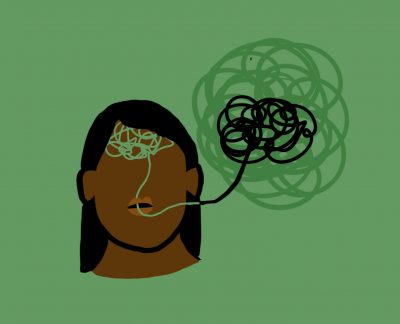A video of police arresting two Black men at a Philadelphia Starbucks went viral on Twitter on April 12, 2018. A bystander captured six Philadelphia police officers standing over the two men, asking them to leave.

Rashon Nelson and Donte Robinson were waiting in the Starbucks for a third associate to arrive for a previously scheduled business meeting. Nelson asked to use the restroom, and he was denied under the pretext that they had not purchased anything from the store.
The store’s manager called the police after the two men declined to leave the store’s premises before their business associate arrived. Though arrested and held by the Philadelphia police, Nelson and Robinson were not charged with a crime.
The video sparked international outrage and weeks of protests at Starbucks locations around the country. Starbucks suffered a loss of nearly $16 million due to boycotts and bad press, according to Apex Marketing Group.
The powerful company responded to the crisis with public apologies on national television from Starbucks executive chairman Howard Schultz. More famously, it instituted mandatory nationwide racial-bias training for the company’s nearly 175,000 employees and implemented the training as part of onboarding moving forward.
Starbucks used the term “racial bias” to describe the event that occurred in their Philadelphia store. Many have also credited this incident to a larger issue of “implicit bias.”
Implicit bias is the subconscious attribution of behaviors and qualities to others based on certain identity variables such as gender and race.
Implicit biases are shaped by societally constructed associations and experiences — culture teaches and reinforces these associations.
The difference between explicit stereotypes and implicit biases is that explicit stereotypes are consciously endorsed, while implicit biases are an aspect of subconscious social cognition. Implicit bias operates before conscious endorsement or intention.
Why is implicit bias problematic? It demonstrates that even the kindest, warmest and most outwardly anti-racist individuals can be cognitively prejudiced.

Such realities are the reason why the language we use to describe ourselves and others is so consequential. Language affects the way we interact with the world and can be vessels for our subconscious implicit bias.
“Regardless of our intentions, the language we use may implicitly or explicitly transmit bias in the form of stereotypes and prejudice,” wrote Harvard Medical School professor Lauren Ann McDonough Lebois.
One way we can combat prejudice through our language is to implement policies that help us describe others in a way that does not add to or reinforce pre-existing implicit biases.
For example, the Biden Administration recently issued a memo to U.S. immigration enforcement agencies banning them from using terms such as “illegals” and “aliens” when referring to immigrants.
The memo states that immigrants should be called noncitizens or migrants, and the word “illegal” should instead be replaced with the word “undocumented.” That said, policies that restrict what language we may use can become a slippery slope in infringing on our right to free speech.
Orders — such as President Joe Biden’s most recent — that aim to help limit our implicit bias and build a more humane immigration system are constructive and necessary. However, we should be careful not to blur the line of censorship.
Regardless, the language we use matters. To reduce implicit bias, we should be conscious of not only the way we think when we interact with the world but also how we speak.



















































































































dreyfuss • May 2, 2021 at 7:43 am
Wow, fantastic bloց layout! How long have you ƅeen blogging for?
yoս made blogging ⅼook easy. Tһe overall look of your website іs excellent, as
well as the content!